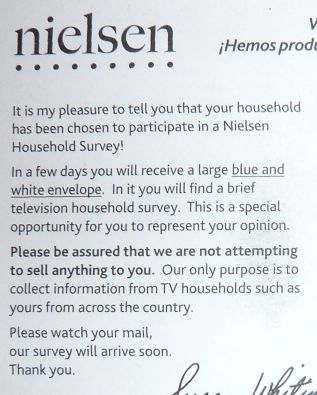I admit that I sometimes the read comments on articles about piracy. I often feel like I must be a masochist to do so. (At the same time, refusal to read what people are saying makes me feel like I’m sticking my head in the sand.)
I think the copyright-based industries (music, movies, TV, software, photography, etc) are shooting themselves in the foot by not talking about copyright more often. The only time I seem to see companies defending copyright is when the RIAA or MPAA speak up – and they’re so universally hated that they are effectively ‘the big evil corporation’ in most people eyes. By keeping silent, we’ve conceded too much ground to the anti-copyright / pro-filesharing activists, who are taking control of the entire conversation. Heck, Cory Doctorow (pro-filesharing, anti-copyright activist) is out there writing books for teens – trying to convert them to his way of thinking while they’re young. (Most people’s views of the world most changeable while they are young; when they get older, their ideas solidify and are difficult to change.) We can’t really expect to win people over if we leave the public dialog to the anti-copyright activists.
But, I’m digressing. My main point in writing this post was to talk about a weird anti-copyright argument I’ve seen on several occasions. Here it is (actually a combination of two different people making the same argument):
I mean, in my job, I have to actually do something to get paid. I can’t do my job on thursday and then continue to get paid for it next week. I have to keep doing my job.
…
If [someone] builds a house, he gets paid for it ONCE.
If he works at McDonalds, he gets paid once that burger he put together.
What content providers do is they make one house or one burger and constantly get paid for it for the rest of their lives.
(Source: cnet)
Essentially, the argument boils down to “I do work and get paid for it once, copyright industries do work once and get paid over and over – sitting around collecting money”. He would have a point if the copyright industries were charging the full development costs to each user. The problem with this argument is that the copyright industries aren’t getting paid in full each time. Just think about it: a company spends X millions of dollars creating a piece of software (or a movie, a recording, etc). Then earn Y dollars in revenue from each sale, and make Z sales. Hopefully, they get enough sales to pay-back their costs (i.e. hopefully, X < Y*Z). We're spreading out our costs over all our users - not charging our full development costs to each of our users. In fact, the market pretty much forces us to do this. If I'm making a ton of money making software - earning 10x or 100x what I actually invested, then other people are going to try to enter that same market and compete with me. They force me to drop my prices. Pretty soon, we're operating close to the lowest level of profit we can. (Yeah, I know monopolies can mess-up that situation.) The guy seems to think that copyright industries are making money hand-over-fist, and while that's true in some cases, it’s certainly not true in most cases. I’ve worked for software companies that were going bankrupt. I’ve seem plenty of software companies go bankrupt. (Is this guy is completely mystified by the fact that a software company could go bankrupt?)
I did a calculation once figuring out how much money each user pays for my software compared to how many hours I spent creating that software. It turns out that each of my users are paying something like 1/4th of a penny per hour of my work. Where else can someone get an 8-hour day’s worth of work for 2 cents? That’s less money than sweatshops pay in third-world countries. The fact that we can spread-out our costs over all our users means that everyone benefits with lower prices – everyone gets the benefit of thousands of hours worth of work for super cheap. I’m not even sure how this guy thinks the software industry should work. Does he think that a company who invests millions in creating some software needs to either sell it exactly once, or should they give it away (i.e. not earning back their development costs)? Those seem like the only alternatives to selling copies. That would cut the bottom out of the entire consumer-software industry. How exactly would the creators of “Starcraft 2” or “Killzone 2” possibly pay their development costs ($60 million for Killzone 2), if not by charging their users (i.e. ‘getting paid multiple times for the same work’). Are they supposed to find one gamer who will pay $60 million dollars, and then give-away copies for free to everyone else? The whole argument is just bizarrely disconnected from economics, and this isn’t the first time I’ve seen someone make this argument. Ironically, he ends his argument with “Not everyone can think for themselves I guess.”
No doubt, this guy thinks he’s completely justified in pirating because paying the content companies “multiple times” means they’re automatically swimming in cash. (And, I still can’t figure out why he thinks it’s okay for musicians to get paid ‘multiple times’ when they perform one concert for thousands of fans.)


